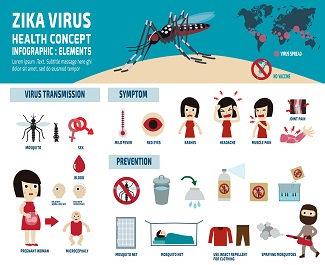Mistake 1: Setting your expectations too high
You could have heard or read that babies at around two months to three months old will be able to sleep through the night and it makes you worry why your baby is not following this schedule.
All babies are different and that waking up at night is perfectly normal, and it is indeed very common. Many babies wake for night-time feeds until they are at least six months old.
Remember, do not compare your baby with others.
Mistake 2: Picking up your baby as soon as he starts crying
Out of care, love or anxiety, you rush to his bed each time when your little one starts crying. Experts actually recommend you to not to do so.
First, it is natural for the baby to wake up between their sleep cycles each night. If you go to bed to pick him up immediately, he will not have an opportunity to learn how to soothe himself and get back to sleep.
It is recommended that you wait a few minutes before going to your baby. Gradually, he will learn how to soothe himself- by finding a thumb to suck or knuckle to gnaw on, for example. And one day he will fall back to sleep without any help from you.
Mistake 3: Baby will outgrow sleeping problems naturally
Many parents just hope that their babies’ sleeping habit will improve naturally as time passes by.
It is indeed true that some babies will outgrow their bad sleep habits, but much more babies actually need help.
Sleeping is a skill that your baby has to learn and parents can play a part by creating the conducive environment for them to pick up the skill, providing learning opportunities and necessary guidance in the process.
Mistake 4: Skipping your baby’s bedtime routine
Sometimes, you are just too tired to follow with bedtime routine which may consist of a bath and a book. You hastily draw the black-out curtains and rush him to bed, but your little one is still all alert and full of energy.
The moment you place him on the bed, he will cry and protest because simply he is not ready for bed and he does not know what is expected of him.
A series of calming, pleasing activities before bedtime is important, as it prepares your little one for sleep. It helps to increase melatonin-a hormone that helps body to know when it is time to sleep.
If your baby still has an evening feed, you should arrange this at the start of your bedtime routine, rather than at the end,. This is to prevent your baby from associating feeding with sleeping. It will help him to settle himself if he wakes up during the night.
Mistake 5. Rocking your little to sleep
First, it is fine to rock your little one in order to calm him down or relax him before bedtime, but do not rock your little one to sleep. The problem with rocking baby to sleep is that your baby may grow to depend on it to fall asleep. If he wakes up several times a night, he will need you to rock him each time in order to fall back to sleep.
Another problem with this practice is that your baby probably does not get the deep sleep-more restorative sleep, due to the stimulation of motion,
The key here is to put your baby to bed when he is drowsy, but awake so that he'll learn to self-soothe and get himself back to sleep each time he wakes up.
Mistake 6. Letting your baby or toddler stay up late
It is a common mistake by working mums who want to spend time with their babies after coming home late. The problem with this is that babies who stay up late are usually overtired and refuse to sleep.
When your baby is overtired, he become cranky and it will be much harder to settle in.
If you put your baby into bed when he is sleepy but not overtired or completely asleep, it will be easier for him to learn to fall asleep on his own.
Do look out for signs such as droopy eyelids or eye-rubbing. These tell you that your baby is sleepy and it is time for him to go to bed.
To spend precious time with your baby, you may want to talk to your employer to allow you to leave office on time or bring work back home.
Mistake 7: Introducing quiet music and other distractions at bedtime
You may think those light music, rotating colorful toys would help your baby fall asleep. Instead, they keep your baby awake.
When it is time for your baby to sleep, it is best to keep your baby’s room dark and quiet. Remove anything that can distract your baby from around the crib. Keep all screens out of the bedroom, including TVs, smartphones, and tablets. The light from these electronic devices can cue the brain into thinking it is daytime and make it harder for your baby to fall asleep.
Mistake 8: Not being consistent with your baby
If you have started sleep training your baby, it is important to be consistent in how you handle his night-time wakings, as well as how you put him down to sleep every night. Do make sure your partner is on the same page as you.
It is easy for desperate parents to revert to feeding to sleep, or rocking to sleep, especially when it seems nothing else will work. The problem with this is that your baby may feel insecure and becomes confused with the method of falling asleep, making it even more harder for him to doze off on his own.



